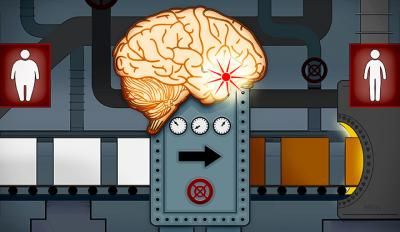World's First Cloned Rats From genOway and INRA
Major Scientific Breakthrough Will Deliver Better Medicines to the World
Advertisement
LYON, France - genOway, Europe's leading provider of transgenic cellular and animal models, and its partner INRA (Institut National de la Recherche Agronomique), announce that they have succeeded in producing the world's first cloned rats. Details of this major scientific breakthrough are published today in Science. The rat is one of the most widely used animal models in scientific research. cloning will aid in the development of genetically modified rat models of greater predictability and quality. Scientific results obtained from these models will contribute to the development of innovative therapeutics for major pathologies such as cardiovascular diseases, cancers, obesity, diabetes and neurological disorders.
genOway has been able to clone the rat by applying a proprietary technology platform derived from nuclear transfer. The adult male and female cloned rats are fertile and exhibit no abnormalities. The data published in Science unambiguously demonstrates that the animals are clones and that the technology can be used to generate targeted mutations in the rat.
"The success we have announced today represents an important result for the pharmaceutical industry, as bio-pharmaceutical companies can now look forward to significant productivity increases in their R&D process by using genetically modified rats. This would save tremendous resources in the industry by optimizing management of the drug development pipeline. We are currently working on building an international consortium that would bring together pharmaceutical companies and biotech companies with the objective of developing knock-out and knock-in rat models targeting therapeutic areas of high unmet medical need, such as hypertension, obesity, diabetes and neurological disorders," said Alexandre Fraichard, CEO of genOway.
"The importance of this scientific breakthrough should not be underestimated given that numerous research teams have been working on rat cloning for years without significant results. The combination of genOway's expertise and INRA's capabilities has been very successful in controlling activation of rat oocytes, the critical parameter in rat reproduction. As a result, we have now mastered the only technology that can achieve targeted genetic modifications in rat. This paves the way for the development of sophisticated genetically-modified rat models which will be of immense benefit to scientists around the world," said Dr Jean-Paul Renard, Head of Reproduction and Developmental Biology, INRA.
genOway is now focusing on the generation of cloned animals with specific genetic modifications (knock-out and knock-in rats), that are designed to provide improved models for highly relevant therapeutic areas such as cardiovascular (hypertension, atherosclerosis... ) and neuroscience (Alzheimer's disease, aging... ). In parallel, the company is also working on new and better models for toxicology and pharmacology studies, two key steps in the drug development process.
Rats are physiologically closer to humans than most other species used in research, and are reliable models for the study of many human diseases, as well as for the discovery of new druggable targets and therapeutic molecules. "The vast amount of physiological data collected on the rat over decades makes it a research model of key importance for many human pathologies," says Prof. M.Lazdunski, a pharmacologist and Director of Molecular and Cellular Pharmacology Institute (CNRS, France).























































